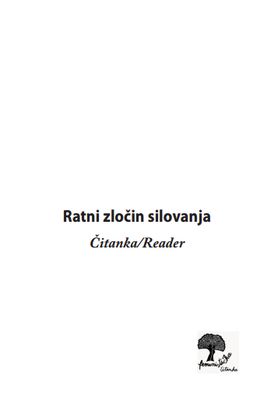
We kindly inform you that, as long as the subject affiliation of our 300.000+ articles is in progress, you might get unsufficient or no results on your third level or second level search. In this case, please broaden your search criteria.

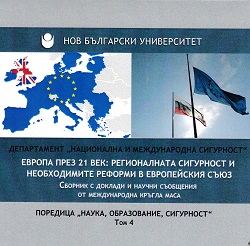
The article is devoted to the role of social exclusion on the formation of criminal personality in perpetrators of violent crimes against the person. EU countries have a sustainable policy to tackle social exclusion, especially in relation to poverty and participation in social networks. Meanwhile many individuals remain outside these policies faced with the choice whether to participate in the criminal space, where they could find psychological support. In this sense, social exclusion is an underlying factor in the genesis of criminal behavior, especially for socially marginalized persons. Data are presented from empirical research on social exclusion of the perpetrators of violent crimes against the person.
More...
This report focuses on the legal basis of Iran and Tajikistan in the field of international cooperation in criminal matters and seeks to analyze the effectiveness and efficiency of the legal regime in the surveyed countries. This article does not cover all aspects of international cooperation in criminal matters and elect three of them, which are key - international legal assistance, extradition and confiscation of criminal assets.
More...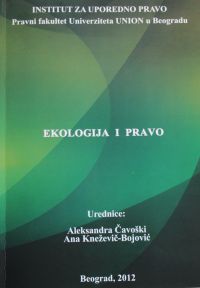
In this paper the authors deal with the comparative analysis of crimes from the group of crimes against the environment, known as environmental crimes, which were, in the course of legislative changes from the beginning of XXI century, relocated and regulated in the separate section entitled „Crimes against environment“ of substantive law in criminal legislations in both jurisdiction. The right to a healthy environment is one of fundamental human`rights, which are guaranteed, primarily, by constitutional provisions of these two countries, and also through a series of other laws, and finally, by the ultimate, criminal protection, which applies in the moment when preventive activity remained without success, overcome by various forms of national and transnational environmental crimes. The authors give a review of crimes in the two neighboring countries, comparing them with each other, both in terms of enforcement actions and prescribed criminal penalties, and then analyze statistics on the criminal offenses, initiated proceedings and imposed criminal sanctions, devoting special attention to the high percentage of suspended sentences imposed for such serious crimes.
More...
Illegal, unregulated and unreported fishing represents a global problem, which causes a series of negative and harmful economic, social, environmental and legal consequences. This phenomenon, often linked to other forms of criminal activities, seriously endangers the security of people and food, questioning not only the survival of entire ecosystems but also the sustainability of the economies of the communities whose incomes directly depend on the exploitation of fish stocks. That is the reason why nowadays various unacceptable forms of fishing are prohibited and punishable on both national and international levels. There are several international legal sources of universal and regional character (such as various conventions, agreements, regulations, decisions etc.), which are aimed at establishing fundamental standards of acceptable and sustainable fishery and declaring which methods and means of fishing are supposed to be prohibited, in order to achieve and maintain the optimal level of fish stocks worldwide and to protect and preserve endangered species of aquatic animals. In the Republic of Serbia, fishing that is conducted contrary to valid legal provisions is considered either as a criminal offence, in accordance with the Criminal Code of the Republic of Serbia, or as a misdemeanour, according to the Law on Protection and Sustainable Use of Fish Stock. The author of this paper analyses fundamental characteristics of this criminal offence, its relation with similar and related misdemeanours, as well as the existing mechanisms of state reaction to these illegal activities. Moreover, the author highlights the advantages and disadvantages of current legislative solutions in this field, suggesting necessary steps that might improve the prevention, suppression and punishment of illegal fishing, in compliance with relevant international standards.
More...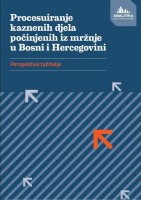
Zločini iz mržnje, shvaćeni kao kaznena djela motivirana mržnjom, odnosno predrasudom prema određenoj skupini, iznimno su štetni jer narušavaju temelje društva i povjerenje među zajednicama. No, u bosanskohercegovačkom kontekstu, takva su djela osobito opasna jer imaju potencijal da multipliciraju već postojeće napetosti, te da otežaju uspostavljanje povjerenja i istinski oporavak društva u cjelini. S druge strane, naslijeđe ratnog sukoba tokom devedesetih godina prošlog stoljeća, podijeljenost društva, dominacija kolektivnih identiteta, svakodnevno medijsko propagiranje netrpeljivosti (i mržnje), dovode do percepcije sveprisutnosti, ali i općeprihvaćenosti i “normalnosti” incidenata motiviranih mržnjom u bosanskohercegovačkom društvu. Imajući u vidu značaj i ozbiljnost reperkusija zločina iz mržnje, sveobuhvatne mjere i aktivnosti na njihovoj prevenciji i unaprjeđenju kaznenog zakonodavstva u tom segmentu nameću se kao imperativ. I zaista, u posljednjih nekoliko godina u Bosni i Hercegovini zabilježena je intenzivna zakonodavna aktivnost na tom planu. Međutim, za uspješno procesuiranje zločina iz mržnje u Bosni i Hercegovini nije dovoljno samo usvojiti odgovarajući pravni okvir, nego je potrebno riješiti i niz konkretnih problema kako bi se osigurala njegova provedba i unaprijedilo procesuiranje zločina iz mržnje. S tim u svezi, a uzimajući u obzir postojeći zakonski okvir u ovoj oblasti u sve četiri jurisdikcije u Bosni i Hercegovini, ova studija nastoji utvrditi koji su ključni problemi sa kojima se tužitelji suočavaju prilikom procesuiranja, odnosno donošenja odluka o procesuiranju zločina iz mržnje, te što je potrebno učiniti da se oni prevaziđu. Drugim riječima, temeljni je cilj studije utvrditi temeljne probleme u ovoj oblasti i ponuditi preporuke na temelju kojih bi se stvorili preduvjeti za uspješnije i adekvatnije procesuiranje zločina iz mržnje u Bosni i Hercegovini. Po svom metodološkom i konceptualnom pristupu, ovo istraživanje razlikuje se od većine dosadašnjih analiza i studija koje su se bavile problematikom zločina iz mržnje, osobito u Bosni i Hercegovini, a koje su prvenstveno bile bazirane na analizi regulative, njezine usklađenosti sa međunarodnim standardima ili razlozima njezina uvođenja. Studija koncipirana na ovakvom istraživačkom pristupu primarno je namijenjena zakonodavnim i tijelima izvršne vlasti, tužiteljstvima i policiji, Visokom sudbenom i tužiteljskom vijeću BiH, te centrima za edukaciju sudaca i tužitelja, ali i svim stručnjacima i praktičarima koji se bave problematikom procesuiranja zločina iz mržnje u Bosni i Hercegovini. Sukladno navedenoj orijentaciji istraživanja, studija najprije prezentira konceptualni i pravni okvir, te analitički i metodološki pristup istraživanja. Nakon toga je prezentirana analiza regulative o zločinima iz mržnje u svim jurisdikcijama u Bosni i Hercegovini kroz prizmu njezine primjene u praksi. Naredno poglavlje studije analizira probleme sa kojim se tužitelji susreću u svojoj praksi, a rasvijetljeni su i određeni strukturalni problemi od značaja za (ne)procesuiranje zločina iz mržnje u Bosni i Hercegovini. Sve navedeno pružilo je adekvatnu osnovu za izradu završnog dijela studije, u kojem su, uz zaključna razmatranja, prezentirane i preporuke za unaprjeđenje procesuiranja zločina iz mržnje u bosanskohercegovačkom kontekstu.
More...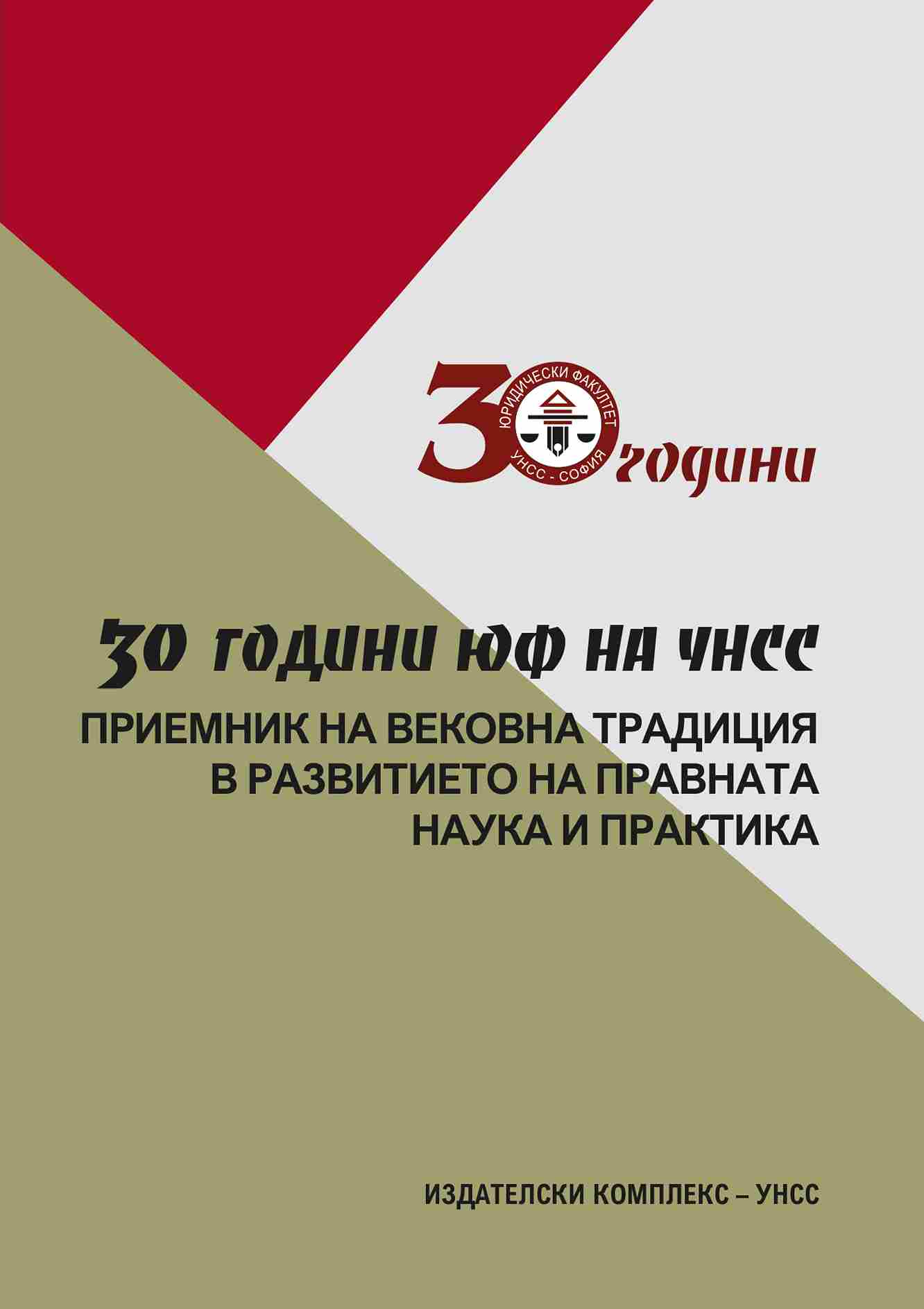
The Conference Proceedings contain papers presented at the Scientific Conference "30 Years Faculty of Law UNWE", Successor of a Centuries-Old Tradition in the Development of Legal Science and Practice, organized on the occasion of the 30th anniversary of the founding of the Faculty of Law of the University of National and World Economy. The conference is part of a series of festive celebrations and was held on November 4, 2021. In the conference halls of the University in parallel modules. Scientists, practitioners, PhD students and students took part, a total of over 50 people in the following four scientific fields: History and Theory of Law, Social and Economic Sciences; Traditions and Modernity in the Development of Private Law; The Role of International and EU Law in a Globalising World; Current Issues of Theory and Practice in Public and Criminal Law.
More...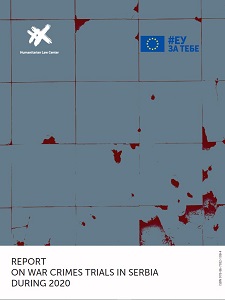
In the reporting period, the War Crimes Department of the Higher Court in Belgrade handed down first-instance judgments in five cases. The War Crimes Department of the Court of Appeal in Belgrade handed down three judgments and two rulings on appeals lodged against judgments of the Higher Court in Belgrade. In the reporting period, the OWCP issued seven indictments against seven persons. The HLC has monitored all war crimes trials conducted in the territory of Serbia in 2020, namely a total of 21 cases conducted before the War Crimes Departments of the Higher Court and/or the Court of Appeal in Belgrade. The Report provides a brief overview of the proceedings and of the HLC’s basic findings in respect of cases which are of public relevance.
More...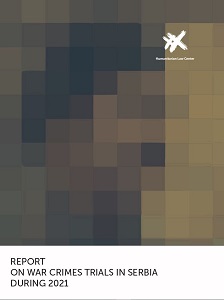
In the reporting period, the War Crimes Department of the Higher Court in Belgrade handed down first-instance judgments in five cases. It also rendered decisions terminating criminal proceedings in respect of three defendants who had died, and dismissed the indictments against two defendants who had become unfit to stand trial. The War Crimes Department of the Court of Appeal in Belgrade handed down six judgments4 and three rulings on appeals lodged against judgments of the Higher Court in Belgrade quashing the first instance judgments and remanding the cases for retrial. In the reporting period the OWCP issued seven indictments against nine persons.
More...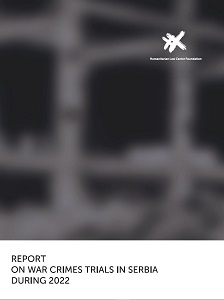
In the reporting period, the War Crimes Department of the Higher Court in Belgrade handed down first-instance judgments in five cases. It also rendered a decision terminating criminal proceedings in respect of one defendant who had died. The War Crimes Department of the Court of Appeal in Belgrade handed down two judgments. Over the reporting period, the OWCP reportedly issued 12 indictments against 19 persons, five of which were transferred from BiH. The report focuses on the work of the Office of the War Crimes Prosecutor (OWCP) and of the courts in parts of the judicial proceedings open to the public, primarily by analysing the indictments and the judgments in each particular case. An analysis of the work of other bodies involved in the prosecution of war crimes – the War Crimes Investigation Service of the Serbian Ministry of the Interior (MUP), the Witness Protection Unit and others, cannot not be undertaken in respect of the individual cases, as no information on their activities is publicly available.
More...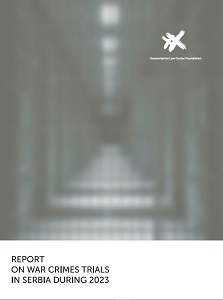
In the reporting period, the War Crimes Department of the Higher Court in Belgrade issued one first-instance verdict. The War Crimes Department of the Court of Appeal in Belgrade issued five verdicts that concluded the proceedings with final force and effect3, and two decisions that annulled the first-instance verdicts and remanded the cases for retrial. In the reporting period, the POWCP, as it states, filed three indictments against seven persons, two of which are still in the examination phase before the competent court. During 2023, one proceeding was conducted in absentia. In 2023 also, the verdict of the Court of Bosnia and Herzegovina, dating from 2014, by which Novak Đukić was sentenced to 20 years in prison, was again not executed. As from 2018, when it was determined by the expert that Đukić was not competent to stand trial, the expert opinion has been presented every 12 months, and every time the expert opinion has been the same.
More...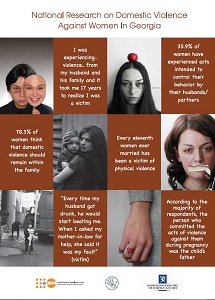
The presented Nationwide Survey on Domestic Violence against Women in Georgia is the first comprehensive survey carried out on the subject of domestic violence against women in the country and it has the biggest sample, which provides information on urban and rural settlements all over Georgia. The survey combines quantitative and qualitative approach in exploring the causes and consequences of domestic violence, as well as perceptions and attitudes of women on domestic violence; this is the first survey collecting data on physical and sexual violence for under-aged group of women, as well as sexual abuse by perpetrators other than husbands and family members. The survey is the first base-line study on the issue. The nationwide survey was conducted using mixed methodology quantitative and qualitative components and overall 2391 women were interviewed age 15-49 within the quantitative component; qualitative component comprised 14 focus groups, 34 in-depth interviews and 2 participant observations.
More...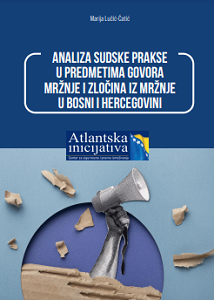
Zločini iz mržnje i govor mržnje su iznimno štetni za osjetljive odnose između zajednica u Bosni i Hercegovini (BiH), jer imaju značajan potencijal da ometaju proces pomirenja i uvećaju postojeće konflikte. Unatoč tome što su oba navedena kaznenopravna fenomena prepoznata i propisana kaznenim zakonima koji su na snazi u sve četiri jurisdikcije u BiH, evidentan je nedostatak razumijevanja ovih suvremenih pravnih koncepata, kao i manjkavosti u njihovom procesuiranju i sankcioniranju. Obzirom na navedeno, putem analize presuda sudova u BiH (u periodu 2013-2022), ispitan je obujam (ne)adekvatne primjene postojećeg pravnog okvira od strane tužitelja i sudaca, kao i obujam (ne)adekvatne primjene kaznenih sankcija za ova kaznena djela. Rezultati provedene analize ukazuju na nepodesno korištenje postojećeg pravnog okvira od strane sudaca i tužitelja na svim nivoima prilikom procesuiranja kaznenih djela iz mržnje i govora mržnje (izazivanja mržnje). Sukladno rezultatima analize sudskih odluka uočeno je da u sudskoj praksi dominira pogrešno podvođenje predmeta pod kaznenopravne odredbe o izazivanju mržnje, kao i praksa izricanja uvjetnih osuda, blaže kvalifikacije kaznenih djela iz mržnje uz odmjeravanje kazne na granici ili ispod granice propisane zakonom. Rezultati provedene analize dovode do zaključka da većina praktičara ne razumije suštinu koncepta kaznenih djela iz mržnje i govora mržnje premda postojeći pravni okvir omogućava različite načine procesuiranja sa različitim pravnim posljedicama kako zločina iz mržnje, tako i pogoršanog oblika govora mržnje (izazivanja mržnje). Pored identificiranja neadekvatnog korištenja postojećeg pravnog okvira od strane sudaca i tužitelja prilikom procesuiranja zločina iz mržnje i pogoršanog oblika govora mržnje prezentirane su i preporuke u svezi prevladavanja identificiranih poteškoća.
More...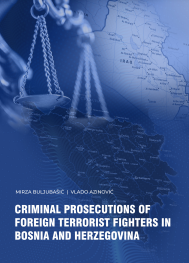
On 10 February 2013, in a private house in Konjic, in Southern Bosnia and Herzegovina, the renowned leader of the country's Kharijite (or neo-Kharijite) extremist community – Husein "Bilal" Bosnić - addressed a group of his devotees. Among other things, he told them: "Islam means following orders. Enslavement to Allah (swt) brings delight. There is no person who has not heard of mujahideen. It is only sad that we are not with them [in Syria], so we pray to Allah (swt) to resurrect us as shaheeds [martyrs who died fulfilling 'God's command']".
More...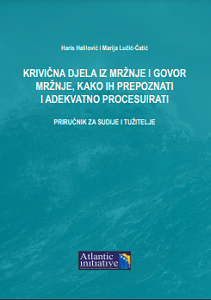
Atlantska inicijativa se od 2009. godine bavi sigurnosnim i pravosudnim pitanjima, što uključuje blisku suradnju sa sigurnosnim institucijama, sudovima i tužiteljstvima širom Bosne i Hercegovine. Atlantska inicijativa više od deset godina istražuje i analizira pojavne oblike ekstremizma, nasilnog ekstremizma i radikalizacije, što je često bilo osnova za razvoj politika i institucionalnih promjena. Atlantska inicijativa bazira rad na dva programa: 1) rodna ravnopravnost, s fokusom na prevenciju nasilja nad ženama, i 2) terorizam, ekstremizam i radikalizacija. Istraživačke studije obaju programa pokazale su da su mržnja i predrasude često motiv za vršenje krivičnih djela. Svim radikalnim pokretima i ekstremističkim grupama žene su veoma visoko na listi neprijatelja, a prava žena, bez obzira na njihovu vjersku i ideološku orijentaciju, u njihovim krugovima stradaju prva. Ekstremni pokreti i grupe koje djeluju u Bosni i Hercegovini i regiji sve su aktivniji u širenju mržnje, koju ispoljavaju direktno u zajednicama, ali i u s prostoru. Na ovaj način oni čine štetu svima, onima na koje usmjeravaju svoje aktivnosti i protiv kojih iskazuju mržnju, ali i cijelim zajednicama unutar kojih su ova djela prisutna. Štetu čine i bosanskohercegovačkom društvu jer na ovaj način pokušavaju narušiti napore na izgradnji mira, tolerancije i demokracije. Oni koji čine krivična djela iz mržnje ili šire govor mržnje negativno utječu na društvenu koheziju naročito kada su ovakva ponašanja direktno ili indirektno tolerirana kroz institucionalni odgovor, odnosno neprocesuiranje ili neadekvatno krivičnopravno procesuiranje. Manjak prevencije za cijele zajednice, ali i nedostatak intervencija za počinitelje ovih krivičnih djela pokazuje tendenciju ka prihvaćanju ili normaliziranju mržnje koja je opasna za cijelo društvo i koja može izazvati ne samo individualno činjenje krivičnih djela već i potaknuti nasilni ekstremizam u zajednicama.
More...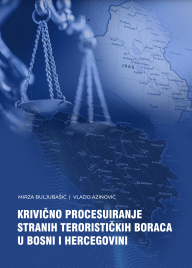
U privatnoj kući u Konjicu (južna Bosna) 10. februara 2013. godine renomirani vođa haridžijske (ili novoharidžijske) ekstremističke zajednice Husein Bilal Bosnić obratio se grupi pratitelja. Između ostalog je rekao: "Islam je izvršavanje naredbi. Robovanje Allahu dž.š. je slast. Nema čovjeka koji nije čuo za mudžahide (misli se na strane terorističke borce). Žalosno je samo što mi nismo s njima (u Siriji), pa molimo Allaha dž.š. da nas proživi kao šehidima (mučenicima koji su umrli ostvarujući ‘božiji nalog’)." Bosnić je na sličan način upućivao poruke u virtuelnom prostoru koje su radikalizirale ranjive osobe i usmjeravale ih na put ka pridruživanju terorističkim organizacijama na ratištima u Irak i Siriju.
More...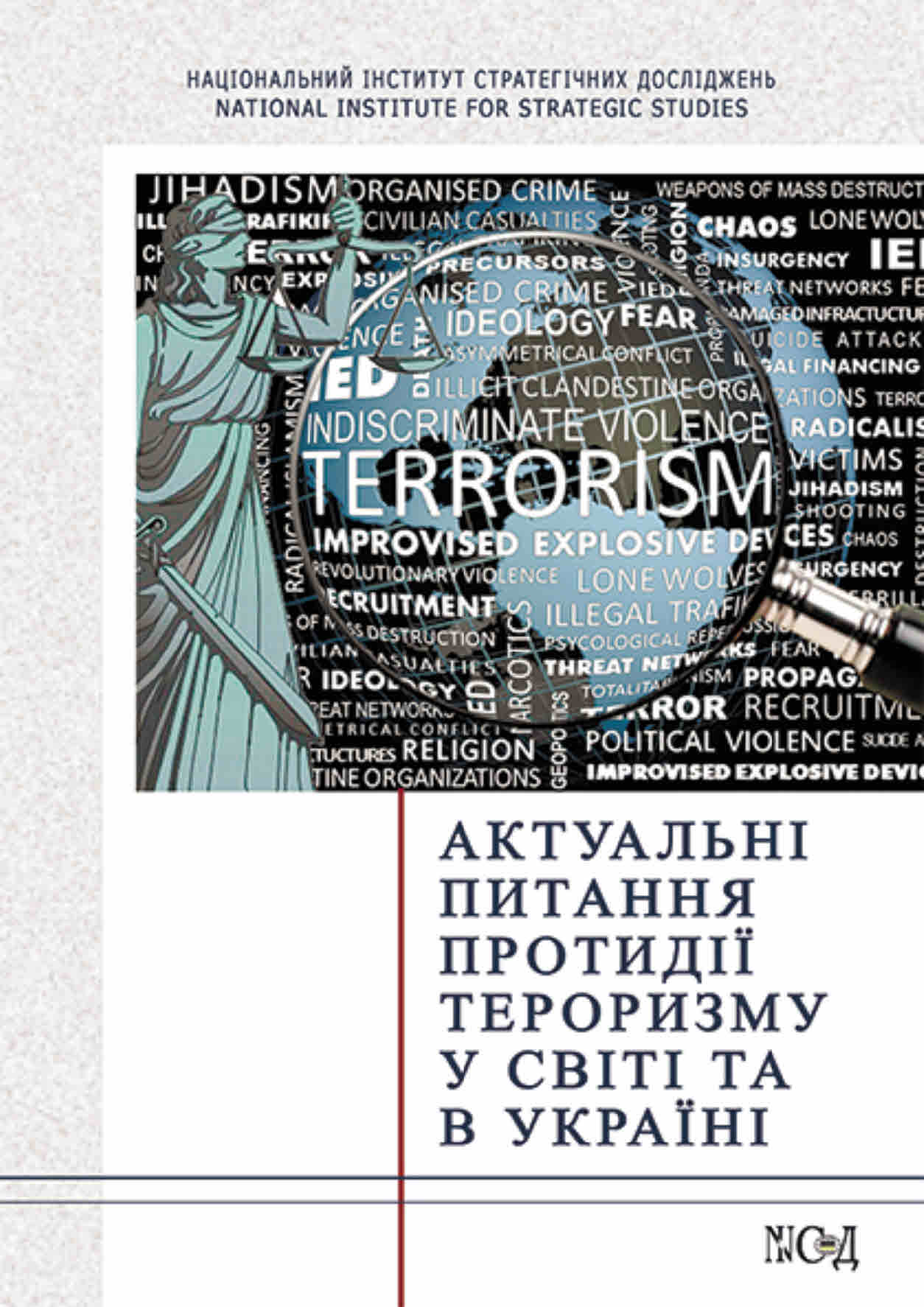
The analytical report examines current trends in the development of international terrorism, features of the fight against terrorism in the modern world, the transformation of the nature of the terrorist threat in Ukraine, mechanisms for ensuring the state's resilience to such a threat. An analysis of the norms of the legislation of Ukraine regulating legal relations in the field of combating terrorism was carried out, a number of shortcomings were identified that negatively affect the effectiveness of the national system of combating this criminal activity, and ways to improve the relevant legislation were determined. It is intended for experts, scientists, specialists in the field of national security, subjects of authority, representatives of public organizations and individual citizens, everyone who is interested in the problems of counter-terrorism, and can also be useful during the development and adoption of legislative acts, which will regulate legal relations in this area.
More...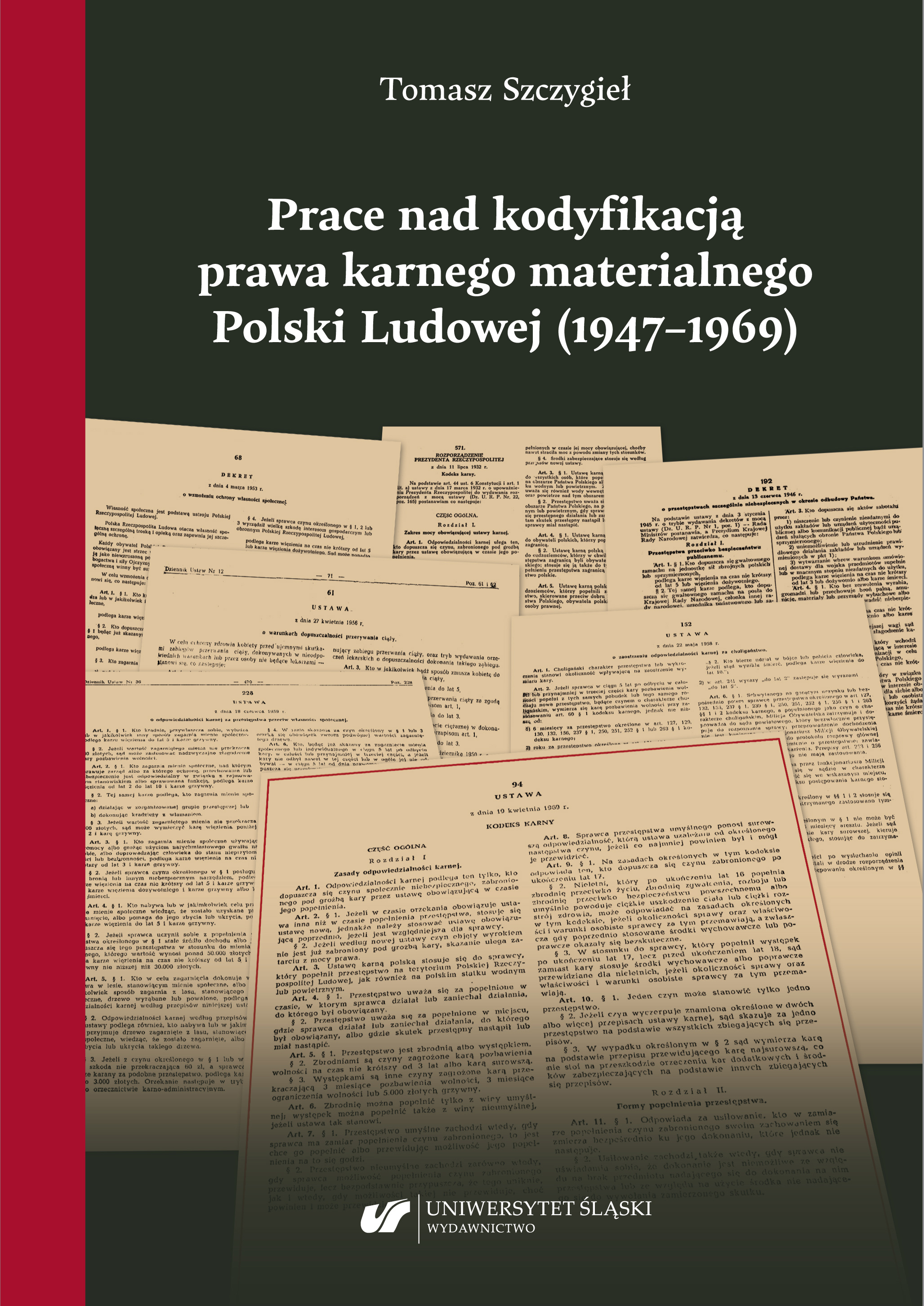
The monograph presents the changes in Poland's substantive criminal law system after the Second World War. The author focused primarily on the codification process, including the issues of jurisprudence and extra-code regulations that were issued in 1947-1969. The work has been divided into four parts, corresponding to the successive stages of adopting the penal code by the Sejm of the People's Republic of Poland on April 19, 1969. The first part deals with issues introducing the codification of criminal law in a communist state. The next three include work on draft codes from 1956, 1963 and 1968. Each part is presented in the context of socio-political changes in the political system of People's Poland. The effects that the author reached as a result of the research carried out include, among others, the features of the codification process in the years 1947-1969, the reasons for the design work and the characteristics of the penal code of the people's state.
More...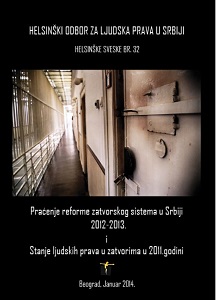
Over the years, the Helsinki Committee for Human Rights visited prisons in Serbia and reported on the human rights situation of convicted and detained persons - in other words, since 2001, the Committee has visited all 28 penal institutions, many of them more than once. In a large number of reports, the Board specifically analyzed the discrepancies between domestic legislation and international standards on the one hand and practice in the sanctions enforcement system on the other hand, suggesting possible solutions.
More...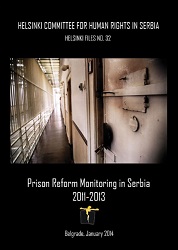
Over the past ten years, the Helsinki Committee for Human Rights in Serbia (HCHRS) has conducted dozens of visits to prisons in Serbia with the aim of making an assessment of the human rights conditions for imprisoned and detained citizens. Since 2001, the HCHRS has visited all 28 institutions for the execution of criminal sanctions, many of which several times. In a vast number of reports1, the HCHRS has conducted analyses and noted non-compliance with solutions prescribed by national legislature and international law on the one hand, and with common practices in the system of execution of criminal sanctions on the other.
More...